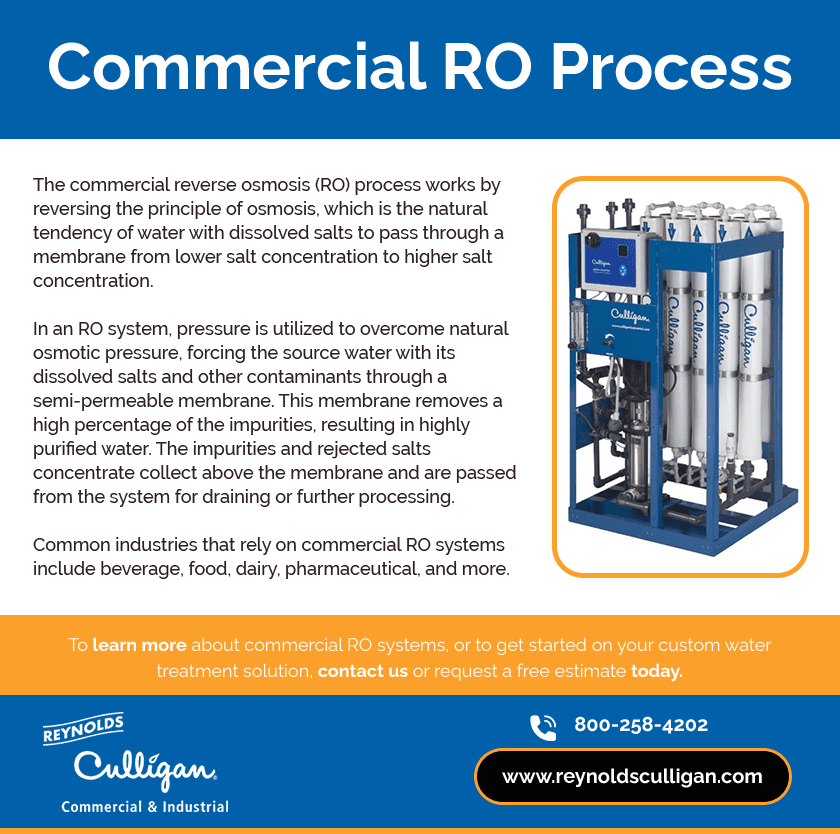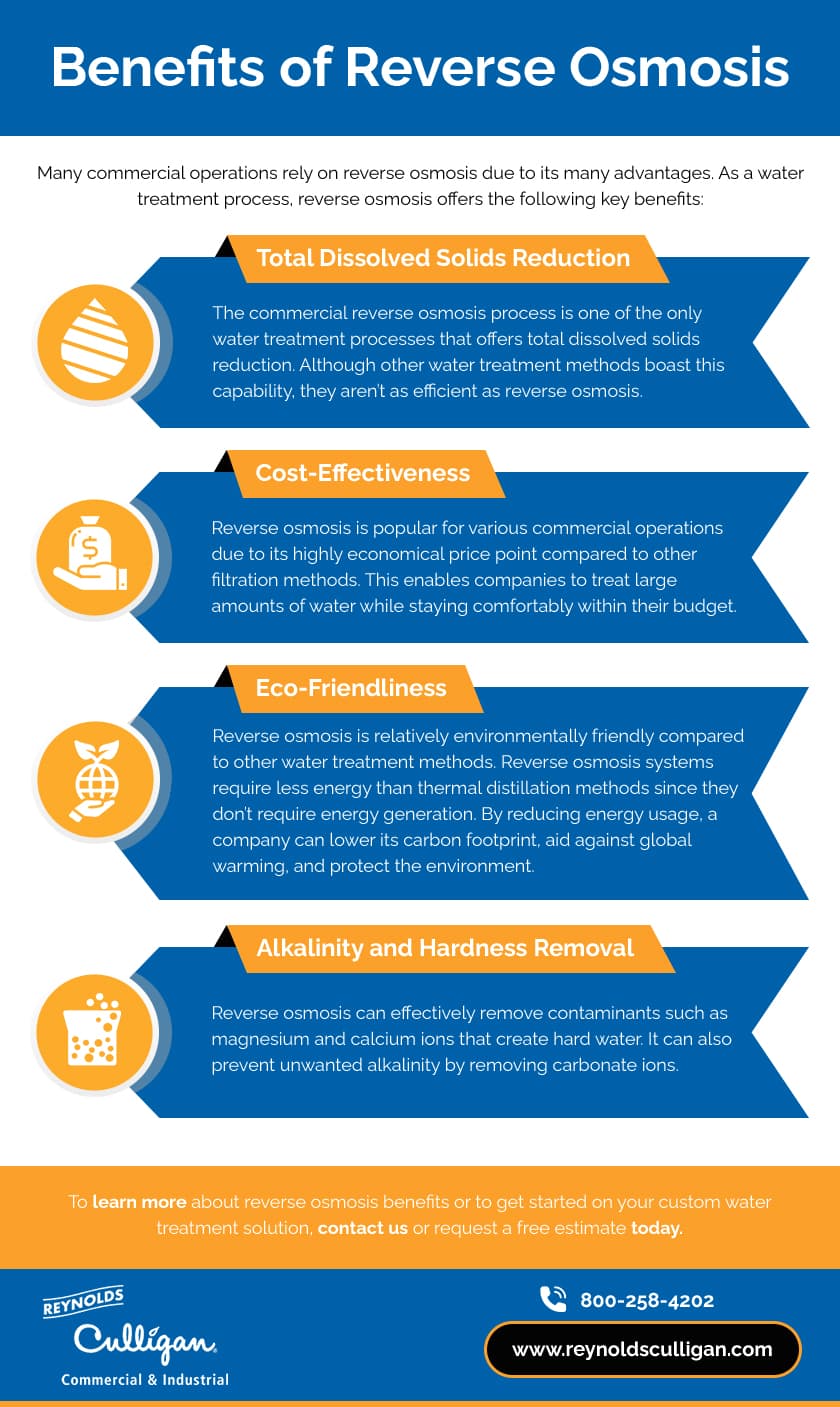Reverse osmosis is a technology that treats water to remove salt, chlorine, sediment, and other impurities. During the Reverse osmosis process, pressure is used to pass source water through a thin membrane. The semipermeable membrane allows the water through while catching the solids and bigger molecules like ionized dissolved salts and other contaminants. A wide range of industries and applications rely on commercial Reverse osmosis systems to deliver highly purified water when required.
Commercial RO Process
The commercial Reverse osmosis (RO) process works by reversing the principle of osmosis, which is the natural tendency of water with dissolved salts to pass through a membrane from lower salt concentration to higher salt concentration.
In an RO system, pressure is utilized to overcome natural osmotic pressure, forcing the source water with its dissolved salts and other contaminants through a semipermeable membrane. This membrane removes a high percentage of the impurities, resulting in highly purified water. The impurities and rejected salts concentrate collect above the membrane and are passed from the system for draining or further processing.
While RO systems are most common in industrial processes, they function the same way and offer the same benefits when used commercially. Each commercial osmosis system is customized based on the desired quality of water and the type of raw water issues you have. Common industries that rely on commercial RO systems include beverage, food, dairy, pharmaceutical, and more.
Benefits of Reverse Osmosis
Many commercial operations rely on Reverse osmosis due to its many advantages. As a water treatment process, Reverse osmosis offers the following key benefits:
- Total dissolved solids reduction. The commercial Reverse osmosis process is one of the only water treatment processes that offers total dissolved solids reduction. Although other water treatment methods boast this capability, they aren’t as efficient as Reverse osmosis.
- Cost-effectiveness. Reverse osmosis is popular for various commercial operations due to its highly economical price point compared to other Filtration methods. This enables companies to treat large amounts of water while staying comfortably within their budget.
- Eco-friendliness. Reverse osmosis is relatively environmentally friendly compared to other water treatment methods. Reverse osmosis systems require less energy than thermal distillation methods since they don’t require energy generation. By reducing energy usage, a company can lower its carbon footprint, aid against global warming, and protect the environment.
- Alkalinity and hardness removal. Reverse osmosis can effectively remove contaminants such as magnesium and calcium ions that create hard water. It can also prevent unwanted alkalinity by removing carbonate ions.
Commercial RO Systems from Reynolds Culligan
Commercial RO systems are vital to a range of commercial operations, providing highly pure water for applications such as food and beverage processing, pharmaceutical production, car washes and more. At Reynolds Culligan, we are proud to be the only commercial and industrial water treatment services company in the Mid-Atlantic that provides comprehensive, single-source water treatment technology solutions for any industry or application. This allows us to save your business valuable time and resources while providing top-quality water treatment systems that meet your needs.
To learn more about commercial RO systems, or to get started on your custom water treatment solution, contact us or request a free estimate today.



